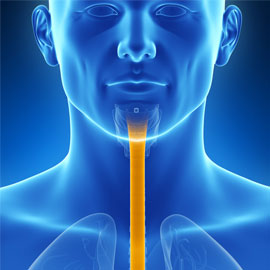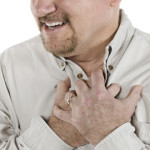
Esophagitis is an inflammation, irritation or swelling of the esophagus—the tube that connects your stomach to your throat. Gastroesophageal reflux disease (GERD) is a common cause of esophagitis and swallowing can become painful and difficult. In this article Dr. Bagnato looks at the relationship between Esophagitis and GERD
Other Symptoms of Esophagitis Include:
- Chest pain while eating
- Nausea
- Vomiting
- Sore throat
- Acid reflux
- Mouth sores
- Halitosis
Since some of the symptoms associated with esophagitis can be caused by various digestive conditions, it is best to see your doctor if the problem persists, worsens or if over-the-counter antacids don’t work. Additionally, you may want to see your doctor if the above symptoms are accompanied by shortness of breath while eating or flu-like symptoms.
Causes of Esophagitis
Gastroesophageal reflux disease (GERD) is usually the most common cause of esophagitis. This is when acid from the stomach flows up into the esophagus.
Eosinophilic esophagitis is an autoimmune disease that can also cause esophagitis if you come into contact with something to which you are allergic.
Certain factors which may also increase your chances of developing esophagitis include:
- Drinking alcohol
- Smoking and tobacco use
- Surgery or radiation in the chest
- Certain medications if they are taken without water (antibiotics, pain-relievers and potassium chloride)
- Obesity
- Hiatal hernia
Treatment of Esophagitis and GERD
Once your doctor has diagnosed you with esophagitis and GERD, your treatment depends on what is causing it. Your doctor may recommend dietary changes, including the avoidance of certain GERD trigger foods like tomato products, spicy foods and caffeine. You may also want to avoid sweets like chocolate and any food allergens.
However if dietary changes don’t help, your doctor may explore other options such as:
- Proton pump inhibitors (PPIs). These will block acid from producing in your stomach and allow time for healing in the esophagus.
- Fundoplication. This is a surgical procedure in which a portion of the stomach is wrapped around the lower esophageal sphincter, strengthening it and preventing acid from coming back into the esophagus.
Losing weight and quitting smoking are also effective lifestyle changes for treating and preventing esophagitis.
If left untreated, esophagitis could lead to possible complications, such as the narrowing of the esophagus, a development of abnormal tissues lining the esophagus or Barrett’s Esophagus. If you believe that you may have esophagitis it is best to seek medical attention to relieve discomfort and prevent any further medical conditions.



